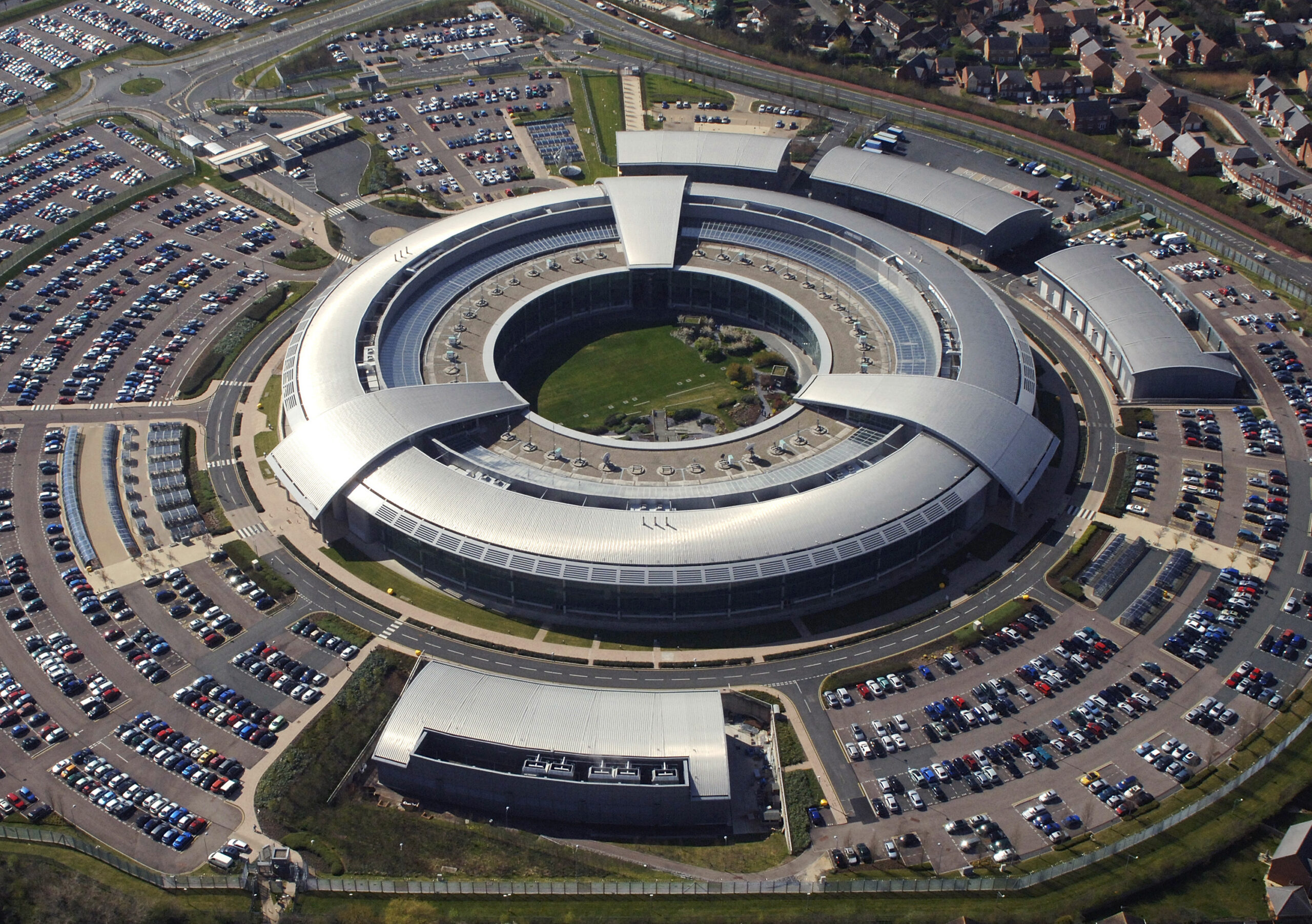With almost 10 years elapsed since ministers last set out a dedicated plan, a parliamentary report recommended various measures – some of the most significant of which have seemingly been rejected
Advocates have expressed disappointment in the government’s apparent rejection of the recommendation to set out a new national strategy for tackling digital exclusion and create a dedicated Whitehall unit.
The House of Lords Communications and Digital Committee this summer published a report examining digital exclusion and warning that, without swift and targeted action from government, the issue could cause “profound consequences for individual wellbeing and multibillion-pound implications for UK productivity, economic growth, public health, levelling up, education and net-zero objectives”.
The report’s headline recommendations urged government to create a new nationwide strategy to tackle digital exclusion – replacing a plan set out in 2014 – and establish a dedicated unit in the Department for Science, Innovation and Technology to lead its implementation, working closely with Downing Street.
In its formal response – published a month later than peers had requested – the government appears to have rejected both of these measures.
“The principles underpinning the 2014 digital inclusion strategy continue to inform our current thinking in so far as access, skills, motivation and trust remain key barriers facing digitally excluded people,” the response said. “The government does not consider digital inclusion as a stand alone issue, but rather something that is considered in all policy areas where applicable.”
It added: “The broad and cross-cutting nature of digital inclusion policy means that a dedicated unit risks separating inclusion from dedicated policy expertise and diluting departmental ccountability. Our aim is to ensure that digital inclusion remains embedded across every aspect of government activity, which makes it a challenge for any single unit within Government to be comprehensively responsible for digital inclusion.”
Related content
- Birmingham City Council gets digital inclusion team
- Scottish Government puts £600k into programme to support digital inclusion in mental health and housing
- LGA picks councils for digital inclusion funding
Although there are no plans to create a team of officials, the government said that it will establish a “dedicated cross-Whitehall ministerial group chaired by the minister for tech and digital economy”.
Other recommendations were also rebuffed, including calls to provide a clearer definition of what constitutes a ‘social tariff’ for mobile or internet connectivity, and to remove VAT on such products.
Peers also recommend that government should lead by example “by encouraging public sector organisations to securely wipe, refurbish and donate old devices to digital inclusion device distribution schemes. It should encourage businesses to do likewise”.
While this was not completely ruled out, government’s response claimed that previous attempts donate departmental devices have concluded that doing so was not possible, owning to security issues.
“DSIT has explored the option of donating end of life government devices to digital inclusion device distribution schemes,” the response said. “Significant security and data privacy concerns associated with providing Government devices, even when they are fully wiped, as well as requirements for contractual compliance, prevent DSIT from doing so at this moment in time. We are aware there are differences in the approach to end of life device recycling across the public sector dependent on existing contractual requirements. We will conduct a substantive review of DSIT’s current position to identify a potential roadmap to future donation. We will use the newly established cross-Whitehall ministerial group to encourage other government departments and public sector bodies to do the same. “
Charity Good Things Foundation – whose evidence to the committee was widely referenced in its final report – runs a device donation scheme, which has received machines from various public sector organisations, as well as commercial firms such as Ocado and Microsoft.
‘Wrong side of the divide’
The charity’s chief executive Helen Milner said that the government’s response to the peers’ report “isn’t good enough”.
“Millions of people are on the wrong side of the digital divide,” she added. “The government recognises the risks this poses to our economy, society, and ambitions – the country is missing out on billions of economic benefits. It’s time to be bold on action on digital inclusion, and even in a tight fiscal environment the Government could be promising so much more.”
Chair Baroness Stowell of Beeston was similarly underwhelmed by the government’s response to her committee’s report.
In a letter to Paul Scully, minister for tech and the digital economy, Stowell said that peers are “disappointed at the lack of further ambition indicated by the government response [which] does not engage substantively with the extent of some of our concerns”.
The chair reiterated the committee’s recommendation for the creation a new dedicated strategy, and urged ministers to belatedly heed this call by rethinking its response: “The government still has time to demonstrate its commitment to this issue by developing a new digital inclusion strategy. We urge you to take this opportunity.”
“We struggle to understand why your response maintains that digital exclusion is a priority when the government’s flagship strategy is nearly a decade old, its public-facing monitoring systems appear to have ceased, key partners no longer exist and expert witnesses throughout our inquiry deemed the strategy out of date,” Stowell said. “One of the links in your strategy invited readers to purchase the domain name of an apparently defunct website, while others refer to long-discontinued programmes. This hardly inspires confidence that this area is kept under regular review.”
She added: “We note your suggestion that the principles remain relevant. But the relevance of principles is not the same as the enduring relevance of an entire strategy. Most areas of government, for example national security and defence, have long-standing principles but regularly update their strategies and action plans. The government’s refusal to do so for digital exclusion suggests a reluctance to dedicate political attention and departmental resource to this matter. We reiterate our conclusion: the Government’s contention that digital exclusion is a priority is not credible.”





https://oragoda.tistory.com/entry/농협-체크카드-비밀번호-초과-시-간단-해결-방법-3가지
https://oragoda.tistory.com/entry/콜라겐-먹는-시간-하루-권장량-확인하세요
영등포안마살롱
https://madreviewer.tistory.com/tag/프로바이오틱스20복용법
https://madreviewer.tistory.com/entry/EC96B4EB8F84EBB984-ED8FACED86A0EC83B5-CC-2020-EBACB4EBA38C-EB8BA4EC9AB4EBA19CEB939C
벼룩시장 신문그대로보기 (구인구직, 부동산) 벼룩시장 신문그대로보기 바로가기 그리고 지역별 벼룩시장 종이신문그대로보기 방법 (구인구직, 부동산) 알아볼게요. 교차로신문 같이 벼룩시장은 지역별 일자리, 구인구직, 부동산 등 다양한 정보를 제공해요. 교차로신문그대로보기 바로가기는 아래에서 확인하고, 오늘은 벼룩시장 신문그대로보기 바로가기 그리고 사용법 섹스카지노사이트
벼룩시장 신문그대로보기 (구인구직, 부동산) 벼룩시장 신문그대로보기 바로가기 그리고 지역별 벼룩시장 종이신문그대로보기 방법 (구인구직, 부동산) 알아볼게요. 교차로신문 같이 벼룩시장은 지역별 일자리, 구인구직, 부동산 등 다양한 정보를 제공해요. 교차로신문그대로보기 바로가기는 아래에서 확인하고, 오늘은 벼룩시장 신문그대로보기 바로가기 그리고 사용법 섹스카지노사이트
벼룩시장 신문그대로보기 (구인구직, 부동산) 벼룩시장 신문그대로보기 바로가기 그리고 지역별 벼룩시장 종이신문그대로보기 방법 (구인구직, 부동산) 알아볼게요. 교차로신문 같이 벼룩시장은 지역별 일자리, 구인구직, 부동산 등 다양한 정보를 제공해요. 교차로신문그대로보기 바로가기는 아래에서 확인하고, 오늘은 벼룩시장 신문그대로보기 바로가기 그리고 사용법 섹스카지노사이트
https://pornmaster.fun/hd/pokemon-ponyta-xxxxsi-video-komian-sex
하동동해출장만남 소자본 창업
Статья предлагает читателям широкий спектр информации, основанной на разных источниках.
벼룩시장 구인구직 및 신문 그대로 보기 (PC/모바일) | 구인구직 앱 어플 무료 설치 다운로드 | 모바일 벼룩시장 보는 방법 | 벼룩시장 부동산 | 지역별 벼룩시장 | 벼룩시장 종이신문 에 대해 알아보겠습니다. 섹스카지노사이트
I always spent my half an hour to read this weblog’s posts every day along with a cup of coffee.
안성출장마사지
이태원스웨디시안마게이클럽
하동동해출장만남 소자본 창업
여행지
울산콜걸
Woran sterben die meisten Menschen? WHO: Demenzen und Diabetes in den Top 10 https://linkdirectory.at/de/detail/woran-sterben-die-meisten-menschen-who-demenzen-und-diabetes-in-den-top-10
대전호박나이트
https://itgunza.com/195
https://itgunza.com/699
https://itgunza.com/195
https://itgunza.com/995
https://honeytiplabs.com/에어팟-펌웨어-업데이트/
https://honeytiplabs.com/아이폰-배터리-노란색-설정-및-해제-방법/
https://nicesongtoyou.com/tag/ebb2bceba3a9ec8b9cec9ea5-ebb680eb8f99ec82b0/
울산콜걸
https://nicesongtoyou.com/loan/small-loans/
양산시술출장마사지
https://gorgopage.com/전립선비대증에좋은음식-10가지와-전립선-비대증에/
https://madreviewer.tistory.com/tag/산샤댐붕괴
https://dnolife.net/software/honeyview/
https://nicesongtoyou.com/welfare/infants/
대전호박나이트
https://itgunza.com/367
https://kakaotaxi.dasgno.com/kakao-taxi2
https://madreviewer.tistory.com/tag/유튜브20프리미엄20가격
https://gorgopage.com/2023년-달라지는-정책-7가지최저시급생계급여액-인상/
https://souhaya.tistory.com/2566
http://baekis.egloos.com/archives/2021/08
Trefferei https://trefferei.vision
Trefferei https://trefferei.vision
Trefferei https://trefferei.vision
Trefferei https://trefferei.vision
Trefferei https://trefferei.vision
Sex
Sex
Sex
Pornstar
Porn
Viagra
https://klero.tistory.com/tag/노트북20무선랜드라이브
Mexican Easy Pharm: mexico pharmacies prescription drugs – Mexican Easy Pharm
https://mrdeeply.tistory.com/618
pharmacies in mexico that ship to usa https://mexicaneasypharm.shop/# Mexican Easy Pharm
mexican pharmaceuticals online
buying prescription drugs in mexico https://mexicaneasypharm.com/# п»їbest mexican online pharmacies
buying prescription drugs in mexico online
buying prescription drugs in mexico https://mexicaneasypharm.com/# purple pharmacy mexico price list
mexican online pharmacies prescription drugs
http://semapharm24.com/# semaglutide tablets store
where to buy prednisone uk
https://cytpharm.shop/# CytPharm
over the counter prednisone medicine
http://predpharm.com/# Pred Pharm
5 mg prednisone tablets
http://semapharm24.com/# semaglutide tablets for weight loss
prednisone prescription online
https://predpharm.shop/# prednisone 60 mg daily
10mg prednisone daily
https://kamapharm.com/# Kama Pharm
canine prednisone 5mg no prescription
https://dappharm.shop/# dapoxetine online
buy prednisone online without a script
http://cytpharm.com/# CytPharm
how can i get prednisone online without a prescription
http://predpharm.com/# PredPharm
prednisone 500 mg tablet
https://predpharm.com/# prednisone 5mg cost
prednisone brand name india
http://predpharm.com/# prednisone 50 mg tablet canada
prednisone where can i buy
http://predpharm.com/# can you buy prednisone in canada
cheap generic prednisone
https://cytpharm.com/# Cyt Pharm
non prescription prednisone 20mg
https://semapharm24.com/# semaglutide tablets store
prednisone capsules
https://farmabrufen.com/# BRUFEN prezzo
farmacie online affidabili
https://farmatadalitaly.com/# farmaci senza ricetta elenco
farmaci senza ricetta elenco
http://farmatadalitaly.com/# п»їFarmacia online migliore
migliori farmacie online 2024
http://farmabrufen.com/# Brufen senza ricetta
top farmacia online
https://farmabrufen.com/# Farma Brufen
Farmacia online miglior prezzo
winchile casino winchile casino Los torneos de poker generan gran interГ©s.
https://tiptravel.tistory.com/43
Many casinos host charity events and fundraisers. http://jugabet.xyz/# Las estrategias son clave en los juegos.
taya777 register login taya777.icu Game rules can vary between casinos.
Poker rooms host exciting tournaments regularly. https://taya365.art/# Slot machines attract players with big jackpots.
Loyalty programs reward regular customers generously.: phtaya – phtaya login
Players enjoy a variety of table games. https://taya777.icu/# Players can enjoy high-stakes betting options.
La adrenalina es parte del juego.: winchile casino – winchile casino
taya365 com login taya365 Players can enjoy high-stakes betting options.
Promotions are advertised through social media channels. http://winchile.pro/# Las mГЎquinas tienen diferentes niveles de apuesta.
Las promociones atraen nuevos jugadores diariamente.: jugabet.xyz – jugabet casino
영등포안마살롱
taya777 register login taya777.icu Many casinos provide shuttle services for guests.
https://www.ohgunstory.com/entry/EC97B0EAB888EBB3B5EAB68C-EC9DBCEC8B9CEAB888-EC8898EBA0B9-EAB080EB8AA5ED95A0EAB98C
taya365 login taya365 com login The casino atmosphere is thrilling and energetic.
phtaya login phtaya login Most casinos offer convenient transportation options.
The casino experience is memorable and unique. http://phmacao.life/# Entertainment shows are common in casinos.
jugabet jugabet.xyz La variedad de juegos es impresionante.
대전호박나이트
taya777 app taya777 Loyalty programs reward regular customers generously.
phmacao casino phmacao.life Some casinos have luxurious spa facilities.
Gaming regulations are overseen by PAGCOR.: phmacao com login – phmacao club
taya777 app taya777 login Some casinos feature themed gaming areas.
벼룩시장 신문그대로보기 (구인구직, 부동산) 벼룩시장 신문그대로보기 바로가기 그리고 지역별 벼룩시장 종이신문그대로보기 방법 (구인구직, 부동산) 알아볼게요. 교차로신문 같이 벼룩시장은 지역별 일자리, 구인구직, 부동산 등 다양한 정보를 제공해요. 교차로신문그대로보기 바로가기는 아래에서 확인하고, 오늘은 벼룩시장 신문그대로보기 바로가기 그리고 사용법 섹스카지노사이트
http://taya777.icu/# The ambiance is designed to excite players.
Many casinos host charity events and fundraisers.
phmacao phmacao The Philippines has a vibrant nightlife scene.
Los juegos de mesa son clГЎsicos eternos.: jugabet casino – jugabet casino
п»їbest mexican online pharmacies medicine in mexico pharmacies mexico drug stores pharmacies
legit non prescription pharmacies https://megaindiapharm.shop/# Online medicine home delivery
https://klero.tistory.com/entry/ECA09CECB29CEC8B9C-EAB8B4EAB889EC9EACEB829CECA780EC9B90EAB888?category=837794
cheap pharmacy no prescription https://discountdrugmart.pro/# discount drugs
mexico pharmacies prescription drugs: mexican rx online – xxl mexican pharm
easy canadian pharm canadian drug stores canada cloud pharmacy
canadian pharmacy no prescription http://easycanadianpharm.com/# easy canadian pharm
MegaIndiaPharm: Mega India Pharm – Mega India Pharm
Online pharmacy USA: Best online pharmacy – Online pharmacy USA
canada online pharmacy no prescription https://easycanadianpharm.shop/# canadian mail order pharmacy
discount drugs discount drug pharmacy discount drug mart pharmacy
canadian pharmacy world coupon code https://familypharmacy.company/# family pharmacy
online shopping pharmacy india MegaIndiaPharm Mega India Pharm
prescription drugs online https://easycanadianpharm.shop/# easy canadian pharm
Cheapest online pharmacy: Best online pharmacy – family pharmacy
online pharmacy no prescription https://easycanadianpharm.com/# easy canadian pharm
Online pharmacy USA family pharmacy family pharmacy
https://itgunza.com/3457
pharmacy no prescription required http://megaindiapharm.com/# Mega India Pharm
drug mart drug mart discount drug mart
cheapest prescription pharmacy https://megaindiapharm.com/# Mega India Pharm
canada pharmacy coupon https://easycanadianpharm.com/# easy canadian pharm
online pharmacy without prescription https://familypharmacy.company/# family pharmacy